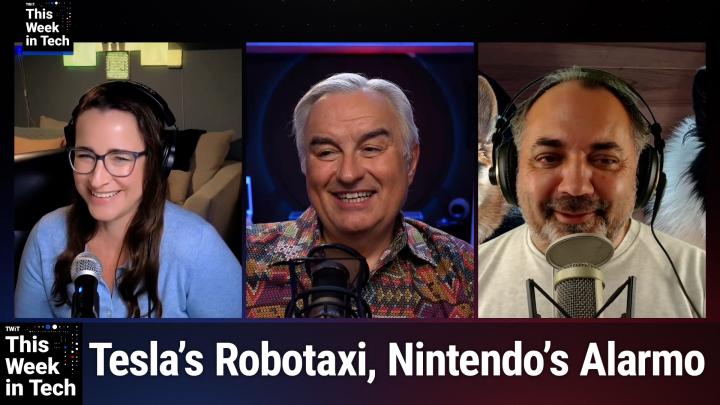Is Tesla's Cybercab a Bridge Too Far for Autonomous Vehicles?
AI created, human edited.
On a recent episode of This Week in Tech, host Leo Laporte and guests Sam Abuelsamid and Jennifer Pattison Tuohy dove deep into Tesla's latest reveal - the Cybercab. This futuristic-looking autonomous taxi caused a lively conversation about the current state and future of self-driving technology.
The Cybercab Unveiling: More Questions Than Answers
Tesla CEO Elon Musk presented the Cybercab as a groundbreaking autonomous vehicle, claiming to have 50 of them backstage. However, the TWiT panel expressed skepticism about these claims. Sam Abuelsamid, an automotive technology analyst, pointed out that Tesla has yet to develop a system capable of safely operating without human supervision.
The panel discussed how Musk has been promising full autonomy "within a year or two" since 2015, yet Tesla vehicles still require active human oversight. This pattern of overpromising and underdelivering was a key point of criticism throughout the chat.
Interestingly, the market seemed to share the panel's skepticism. Abuelsamid noted that Tesla's stock dropped 8% the day after the event, wiping out more than $50 billion in market value - more than Ford's entire market cap! This significant drop suggests that investors may be growing weary of grand promises without matching results.
The Bigger Picture: Autonomous Vehicles and Urban Planning
Despite their criticisms of Tesla's approach, the panel agreed on the potential benefits of truly autonomous vehicles. Jennifer Pattison Tuohy highlighted how self-driving cars could revolutionize city planning, potentially freeing up vast amounts of space currently dedicated to parking.
The discussion also touched on the technical challenges of achieving full autonomy. Abuelsamid explained that while we're currently at Level 4 autonomy in limited circumstances (like Waymo's robotaxi service), reaching Level 5 - full autonomy in all conditions - is likely still 10-15 years away.
The Human Element: Safety and Job Displacement
The subject raised important questions about safety and the potential displacement of human workers. While autonomous vehicles promise to reduce accidents caused by human error, concerns remain about how they'll interact with human-driven vehicles and pedestrians.
Laporte also pondered the societal implications, wondering aloud if we really want robots walking our dogs or looking after our children - a reminder that not all tasks should necessarily be automated, even if they can be.
A Reality Check for the Industry
The TWiT panel's discussion served as a reality check on the current state of autonomous vehicle technology. While Tesla's Cybercab represents an ambitious vision for the future, the gap between promise and reality remains significant.
As Abuelsamid succinctly put it, "This is actually a really hard problem to solve. Tesla has not solved it. No one has solved it fully yet." This encapsulates the current state of autonomous vehicle development - exciting progress, but still a long way to go.
To hear the full discussion, including insights on SpaceX, electric vehicle safety, and the future of smart homes, be sure to listen to the complete episode of This Week in Tech.
